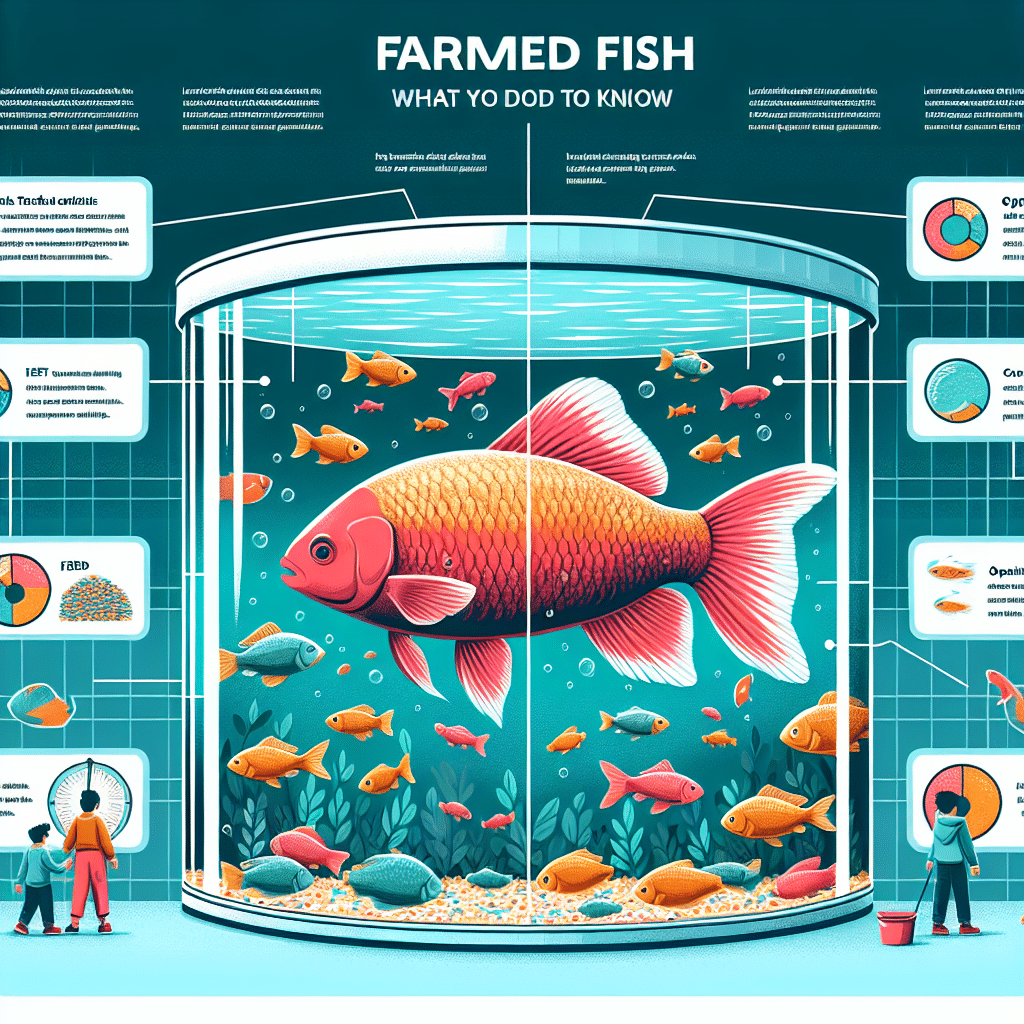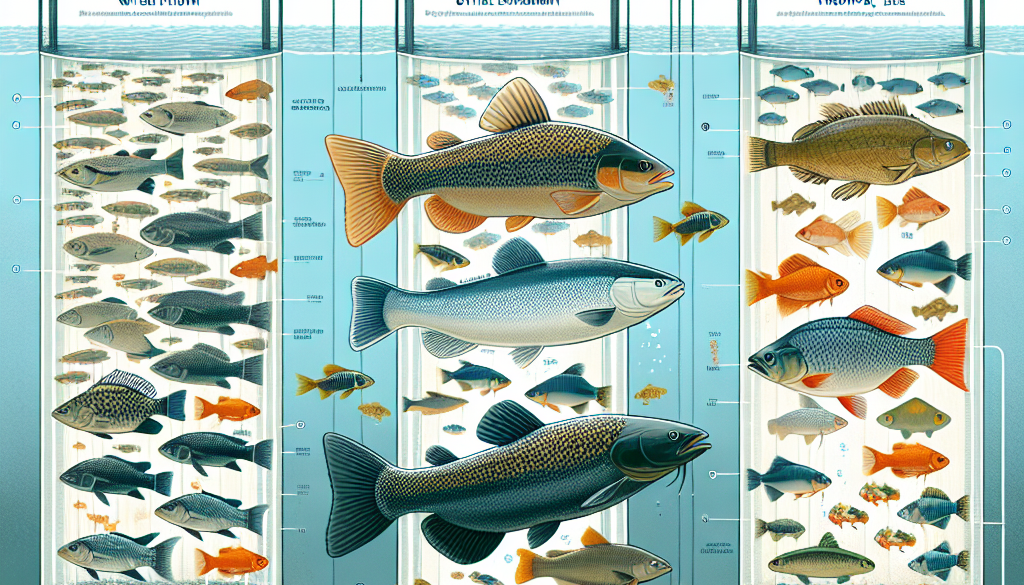Farmed Fish: What You Need to Know
-
Table of Contents
- Farmed Fish: Essential Insights and Considerations
- Understanding Aquaculture
- Types of Farmed Fish
- Benefits of Fish Farming
- Economic Impact
- Environmental Concerns
- Sustainable Practices
- Health Considerations
- Nutritional Content
- Choosing Sustainable and Healthy Farmed Fish
- Key Takeaways for Consumers
- Conclusion
- Enhance Your Diet with ETprotein’s High-Quality Protein Products
Farmed Fish: Essential Insights and Considerations

The global demand for seafood continues to rise, and with overfishing depleting wild fish stocks, aquaculture, or fish farming, has become an increasingly important source of seafood. Farmed fish now accounts for more than half of all fish consumed worldwide. As consumers, it’s crucial to understand the implications of this shift, both for our health and the environment. This article delves into the world of farmed fish, providing you with the knowledge you need to make informed choices.
Understanding Aquaculture
Aquaculture involves the breeding, rearing, and harvesting of plants and animals in all types of water environments including ponds, rivers, lakes, and the ocean. There are various methods of aquaculture, including open-net pens or cages in the ocean, pond systems, and recirculating systems in tanks.
Types of Farmed Fish
- Salmon
- Tilapia
- Catfish
- Shrimp
- Carp
Benefits of Fish Farming
Fish farming can have several benefits, including providing a consistent supply of fish, contributing to food security, and reducing the pressure on wild fish stocks. It can also be a source of employment and contribute to the economy, particularly in rural areas.
Economic Impact
According to the Food and Agriculture Organization (FAO), aquaculture is one of the fastest-growing food production sectors, with a growth rate of 5.3% per year from 2001 to 2018. This growth has significant economic implications, providing livelihoods and contributing to the economies of many countries around the world.
Environmental Concerns
While fish farming can be beneficial, it also raises several environmental concerns. These include the pollution of water systems with fish waste, antibiotics, and chemicals; the spread of diseases to wild fish populations; and the escape of farmed fish into the wild, potentially leading to the interbreeding with wild fish and affecting genetic diversity.
Sustainable Practices
To mitigate these environmental impacts, sustainable fish farming practices are being developed and implemented. These include:
- Improving feed efficiency to reduce waste
- Using vaccines to minimize the use of antibiotics
- Developing closed containment systems to prevent escapes and disease transfer
- Implementing better management practices to reduce environmental footprint
Health Considerations
Consuming farmed fish can be healthy, as fish are a good source of protein, omega-3 fatty acids, and other nutrients. However, there are health concerns related to farmed fish, such as the use of antibiotics and other chemicals, and the higher levels of pollutants found in some farmed fish compared to their wild counterparts.
Nutritional Content
The nutritional content of farmed fish can vary depending on the species, feed, and farming practices. Generally, farmed fish provide similar levels of omega-3 fatty acids as wild fish but may have higher fat content.
Choosing Sustainable and Healthy Farmed Fish
As a consumer, you can make choices that support sustainable and healthy aquaculture practices. Look for certifications such as the Aquaculture Stewardship Council (ASC) or the Best Aquaculture Practices (BAP) when purchasing farmed fish. These certifications indicate that the fish has been produced in a manner that is environmentally and socially responsible.
Key Takeaways for Consumers
- Opt for fish with sustainability certifications
- Research the source and farming practices of the fish you buy
- Consider the environmental and health impacts of farmed fish
Conclusion
Farmed fish play a critical role in meeting global seafood demand, but it’s important to balance this with environmental sustainability and health considerations. By staying informed and making conscious choices, consumers can support responsible aquaculture practices that contribute to food security without compromising the health of our planet or ourselves.
Enhance Your Diet with ETprotein’s High-Quality Protein Products
If you’re looking to complement your seafood intake with high-quality protein sources, ETprotein offers a range of organic bulk vegan proteins that are non-GMO, allergen-free, and feature a neutral taste. Their products, including various plant-based proteins and L-(+)-Ergothioneine, cater to diverse dietary needs and preferences, ensuring you receive the best nutrition for your health and well-being.
About ETprotein:
ETprotein, a reputable protein and L-(+)-Ergothioneine (EGT) Chinese factory manufacturer and supplier, is renowned for producing, stocking, exporting, and delivering the highest quality organic bulk vegan proteins and L-(+)-Ergothioneine. They include Organic rice protein, clear rice protein, pea protein, clear pea protein, watermelon seed protein, pumpkin seed protein, sunflower seed protein, mung bean protein, peanut protein, and L-(+)-Ergothioneine EGT Pharmaceutical grade, L-(+)-Ergothioneine EGT food grade, L-(+)-Ergothioneine EGT cosmetic grade, L-(+)-Ergothioneine EGT reference grade and L-(+)-Ergothioneine EGT standard. Their offerings, characterized by a neutral taste, non-GMO, allergen-free attributes, with L-(+)-Ergothioneine purity over 98%, 99%, cater to a diverse range of industries. They serve nutraceutical, pharmaceutical, cosmeceutical, veterinary, as well as food and beverage finished product distributors, traders, and manufacturers across Europe, USA, Canada, Australia, Thailand, Japan, Korea, Brazil, and Chile, among others.
ETprotein specialization includes exporting and delivering tailor-made protein powder and finished nutritional supplements. Their extensive product range covers sectors like Food and Beverage, Sports Nutrition, Weight Management, Dietary Supplements, Health and Wellness Products, and Infant Formula, ensuring comprehensive solutions to meet all your protein needs.
As a trusted company by leading global food and beverage brands and Fortune 500 companies, ETprotein reinforces China’s reputation in the global arena. For more information or to sample their products, please contact them and email sales(at)ETprotein.com today.












